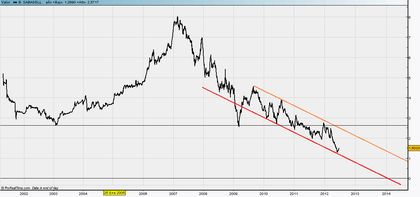Finca Parcs Case: The Land Mark Ruling that Was Not

What Mr. Keith Rule and Castro Abogados have achieved is one great result for the 47-strong Finca Parcs (Hellín) group of claimants who, having paid upfront deposits on a failed off-plan development, found to their horror that through the incompetence of their legal representation, no bank guarantees were available.
An undeniable great exposure has meant that numerous claimants who are on the same boat are starting to enquire what is it with this case that is different from many others, in process or already finalized with equal result. Our firm has received a handful of such enquiries, and presumably, many other are already receiving similar emails.
In writing this, I am aware that I do risk being dismissed as some miserly person void of happiness and filled with envy at the successes of others, but far from it: I do wish to congratulate the Castro family and Keith’s group for this success that, by “juridical contagion”, should help everyone involved in this conundrum.
But still, factuality deserves respect and so, once again, let us allow the truth get in the way of a good story:
- The CAM bank and Cleyton Ges S.L. had given out the 1968/57 bank guarantees to a very large number of customers at Finca Parcs, some of which in fact happened to be represented by us. When the developer kicked the bucket, those with bank guarantees were duly refunded by the CAM whereas those who did not, were told to sod off. No surprise there considering that the predatory CAM bank was governed by a gang of pirates who saw no issues with lending themselves astronomical amounts to invest in the Caribbean, a robbery now subject to criminal investigation.
- To contend that this is a landmark ruling is to be dismissive of the work of many other lawyers who have already obtained success in identical cases. The reality is that there are plenty of rulings that contradict Mr. Rule’s claim that this is legal precedent, no matter how hard, perhaps at the insistence of the media, they were conveniently omitted. Strangely enough, the original article published in El Pais does not say it’s a groundbreaking case, and it does not for the simple reason that it was a serious journalist who did his homework and got the facts right (he did call us and we pointed him to the most reliable source of information: online law libraries!). Conversely, we could admit that, where no bank guarantees of any description or special accounts were available, a ruling ordering a bank to pay would be deemed worthy of being classified as legal precedent. In the ruling of this post, both bank guarantees and a special account were actually available.Keith’s Rule: Don’t let the truth get in the way of a good story!
- To say that Mr. Rule had “…taken on bank bosses after discovering a 45-year-old property law making them jointly responsible with promoters for returning guaranteed deposits on failed developments” is just risible; Mr. Rule has not discovered the 57/1968, just as Roberto Sanchez Saavedra did not discover the Spanish Civil Code (it was already there when his great-grandfather was born). The reality is that the “dug out” 1968 Act was helping many when Franco still went wild-boar hunting, and thousands have already benefited since then…including many of the Finca Parcs victims.
In summary, what has really happened is that Keith Rule and his group hired competent legal representation to help them out, and were lucky that funds were channeled through the developer’s accounts with the CAM, and not pocketed by the rogue developers via overseas accounts (even in this case protection may still be available). And not the least, that many buyers had bank guarantees whereas others didn’t (implying the existence of a blanket bank guarantee), an unfair situation caused by the inaction of property conveyance lawyers, the developer and the CAM bank and, as far as Spanish consistent case law is concerned, totally unacceptable.
But to announce that this is a groundbreaking ruling -when the bank had already given out dozens of individual bank guarantees (a few examples below) to as many customers, and there are plenty of identical rulings on the matter- is just false.
Downloads





 I have an American client, Ray, who happens to be a CAM Bank client. Several months ago, Ray got caught up by this bank’s disastrous decision-making processes and stuck in what seems an unresolvable legal quagmire.
I have an American client, Ray, who happens to be a CAM Bank client. Several months ago, Ray got caught up by this bank’s disastrous decision-making processes and stuck in what seems an unresolvable legal quagmire.